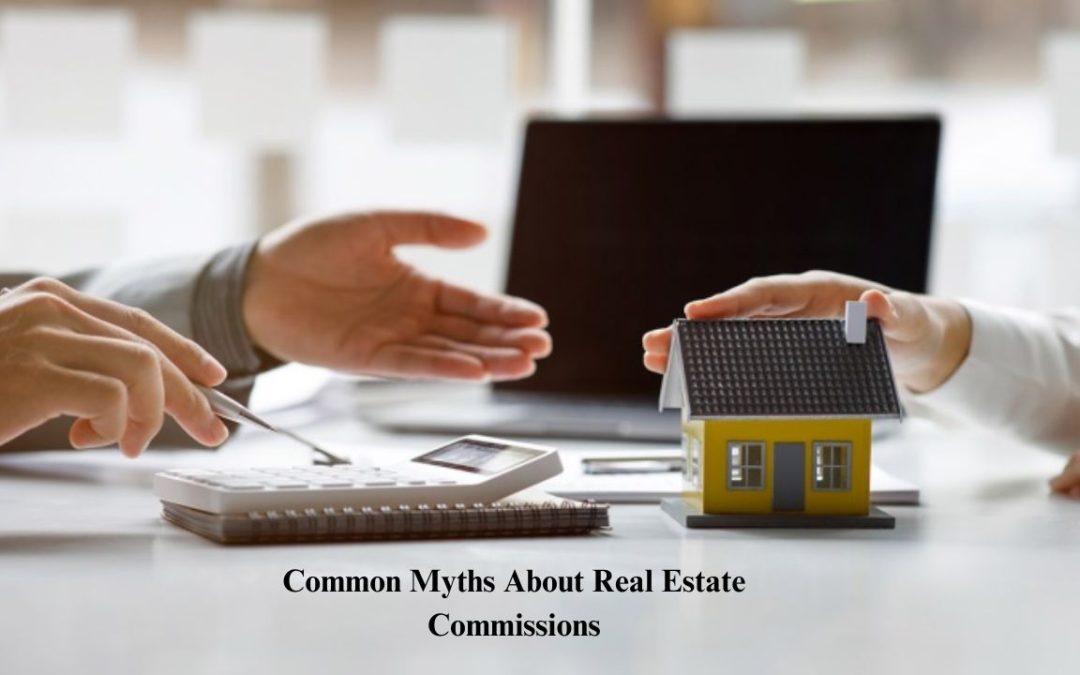Real estate is selling or buying of property and involves dealings that are quite cumbersome, and it is indispensable for a buyer/customer and a seller/supplier to acquaint themselves with the costs entailed. In regard to these costs, one of the largest costs for individuals engaged in these transactions is the commission to be paid to the real estate agents. In this case however, numerous myths exist in relation to this area and this has caused a lot of confusion and distrust among consumers. In this blog, the author will also explain some of the popular myths of real estate commissions as well as what they contain.
Understanding Real Estate Agent Commissions
Real estate agent commissions, before any myths are revealed, essentially refer to what can be called the charge or fee an agent demands for facilitating the sale and purchase of a piece of property. Typically, this fee received in the form of a commission is percentage-wise from the sale price of a property and must be paid upon closing the transaction. The commission rate stands at around 5.37%, according to a statistic at the end of 2023. It breaks down to 2.72% for the seller’s agent and 2.65% for the buyer’s agent.
Myths About Real Estate Commissions
Myth 1: Standard Commission Rate is Always 6%
Many believe that there is a standard commission rate of 6% used in all real estate transactions. There isn’t. The rate varies pretty widely with the conditions of the market, the complexity of the transaction, and most importantly, the services the agent brings to the table. In fact, some charge as little as 4%, and others charge a flat fee.
Myth 2: Commissions are always paid by sellers.
While it is normal for sellers to pay the commissions, this is not an excessive demand. Buyers can sometimes deal with sellers to include all or a portion of the commission in their offer. Moreover, recently Commission structure has shifted; buyers may now also be personally responsible for paying their agent’s commission.
Myth 3: Less Commission = Lower Quality Service
The other big myth is that lower-commission agents must be bad agents. Such an assumption can also result in the failure of potential trades between the buyer and the seller. There is a possibility that some of the discount agents are not well endowed in terms of resources or experience, but there are many good agents who offer their services cheaply without compromising on the quality of the services they offer. The intent is that an agent be picked who is best suited and performs best, irrespective of commission.
Myth 4: Agents Get Paid regardless of sale outcome.
Others believe that real estate agents are paid whether a sale takes place. As one of the misconceptions, transactions can be mayhem. However, in reality agents only get paid once they close a deal. Agents don’t get paid if there’s no sale.
Myth 5: Vendors Give Real Estate Agents Kickbacks
Everyone seems to think real estate agents get kickbacks from lenders or other vendors in the transaction. The Real Estate Settlement Procedures Act (RESPA) prohibits this practice. Agents have to be transparent and ethical, because any kick backs could result in severe penalties for both the agent and the associated vendors.
What Is Funded in Real Estate Agent Commissions?
Real estate commissions can be demystified by knowing what does and does not go into these amounts.
- Agent Expertise: Agent expertise is the first part of any commission. They wade through hours of paperwork, market properties well, and negotiate on their client’s behalf.
- Marketing Costs: Agents pay expenses connected with marketing properties such as professional photography, staging, coverage on the Web, and advertising.
- Administrative Fees: Commissions include other administrative duties, like showing, paperwork management and working with other professionals in the transaction (e.g., inspectors, appraisers).
- Brokerage Fees: Brokers hired agents to work for them and they take a portion of the commission as a way to cover things such as office space and support staff.
At first glance commissions may seem expensive, but they cover a number of services critical to the success of a transaction.
Who Decides the Commission Rate: The Agent, Buyer, or Seller?
The determination of commission rates is arrived at through bargaining between buyers and sellers having their own agents.
- Negotiable Agreements: Commission rates are not set in stone and are negotiable, generally between the seller and the listing agent or between the seller and the buyer’s agent.
- Local Market Influences: In competitive markets where homes are bought and sold with frequency, agents may be more willing to negotiate their commission rates in order to gain a larger client base. In slower markets, however, standard rates may prevail as agents fight over fewer clients.
- Written Agreements: Everyone should have a written agreement stating the commission rate that has been agreed to before any deal is transacted, this way there are no misunderstandings later.
Conclusion
If you’re thinking of buying a home or selling your house, you need to get familiar with real estate commissions. By taking some common myths about these fees apart, we’ll help you become a more informed buyer or seller. Real estate commissions are for the many services agents provide during the home selling or buying process.
Commissions are an investment in the sale of your property and not an expense. When you are a buyer, you don’t pay any commissions! Just be sure to communicate with your agent about fees so there is no confusion from the start to finish. To properly understand commissions and what they mean, the buyer or seller needs to know what a commission is.
Frequently Asked Questions (FAQs)
1. What if I refuse to pay the agent’s commission?
Failure to do so may result in a legal dispute, or worst case scenario, claims against you. This process of including the fees in your closing costs is standard for most agents, and meant to protect them against a situation exactly like this where they are left offering their services at no charge.
2. Is it possible to haggle an agent’s rate?
Yes! You and your agent agree on how much the commission rates will be. Theoretically, you should be talking about this long before signing any agreements in order for everyone to know what is expected.
3. Are there any alternatives to traditional commissions?
Yes! Some agents provide the services at a flat fee, or at a lower charge depending on certain services provided when compared to the commission basis. It can be important to learn more about other models, in order to find out which one is good for you.
4. How do I know if an agent’s commission is fair?
You can look for competent information online about different regions to find whether or not the commission of the agent is justified. However, fairness should also be based on consideration of experience level and services that the relevant customers offer.
5. What should I do if I suspect my agent is charging hidden fees?
If you have a feeling that there are other additional fees which are placed in your agreement with an agent, it is crucial for you to read the entire contract delicately and question the agent on the fees which you do not understand. This ought to be the case with your real estate professional.

